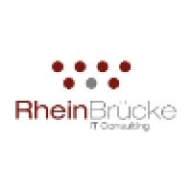

SAP ERP and RheinBrücke Epicor ERP compete in enterprise resource planning solutions. SAP ERP often stands out due to its well-established presence and comprehensive functionality, but RheinBrücke Epicor ERP is strong in adaptability, especially for mid-sized businesses.
Features: SAP ERP provides extensive global scalability, robust integration, and industry-specific solutions, making it suitable for large enterprises. RheinBrücke Epicor ERP's modular design allows easier customization and adaptability, appealing to mid-sized companies looking for tailored solutions. Its flexibility gives it an edge in meeting specific needs.
Ease of Deployment and Customer Service: SAP ERP may involve a complex deployment and while reliable, its customer service can be slower due to broad operations. RheinBrücke Epicor ERP offers quicker deployment and strong customer support with timely and attentive service, making transitions smoother for businesses.
Pricing and ROI: SAP ERP involves higher setup costs, justified for large-scale operations needing comprehensive features, with ROI seen longer-term. RheinBrücke Epicor ERP has competitive initial costs with potentially quicker ROI, due to flexibility and customization, appealing to mid-sized enterprises seeking cost-effectiveness.

RheinBrücke Epicor ERP is an efficient enterprise resource planning solution tailored for dynamic business needs, offering extensive features for improved operational efficiency.
RheinBrücke Epicor ERP provides businesses with a robust framework to streamline processes, enhance productivity, and effectively manage resources. Its adaptable architecture can be customized to fit specific industry demands, ensuring seamless integration and scalability. This facilitates real-time data access for better decision-making and operational insights crucial for maintaining competitiveness in today's market landscape.
What are the most important features of RheinBrücke Epicor ERP?RheinBrücke Epicor ERP is implemented across industries such as manufacturing, distribution, and services, each uniquely benefiting from its tailored features and adaptability. In manufacturing, it manages complex supply chains and production schedules. Distributors use it for inventory management and logistics optimization, while service industries leverage its resource planning tools to enhance project management and customer satisfaction.
We monitor all ERP reviews to prevent fraudulent reviews and keep review quality high. We do not post reviews by company employees or direct competitors. We validate each review for authenticity via cross-reference with LinkedIn, and personal follow-up with the reviewer when necessary.